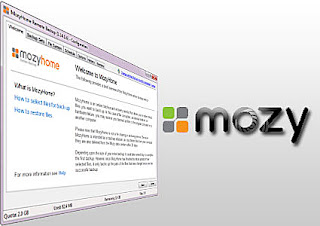TTAB Sustains MOZY v. MOZIE Section 2(d) Opposition But Nixes Fraud Claim
The Board sustained this Section 2(d) opposition to registration of the mark MOZIE for, inter alia, "online digital photo management and online photo sharing," in light of the common law mark MOZY and the registered marks MOZYPRO, MOZYHOME, and MOZYENTERPRISE for, inter alia, electronic data storage services for photos and videos. But Opposer's fraud claim, based on Applicant's false statements regarding use of her mark and her submission of a mocked-up specimen, was rejected for lack of proof of deceptive intent. Decho Corporation v. Brigitte Mueller, Opposition No. 91183001 (August 12, 2011) [not precedential].

In rather routine fashion, the Board found the marks to be similar and the services to be "very similar" and closely related. However, two issues are worth particular attention.
Actual Confusion?: Opposer Decho submitted data from Google Analytics showing that in some 1500 instances, "prospective users of opposer's MOZY branded services mistakenly have typed 'mozie' while searching for opposer's services on the Internet." According to Opposer, "it is likely that these users heard about MOZY by word of mouth and then typed in 'mozie' as their search query."
The Board agreed with Applicant Mueller, however, that "[t]here simply is "no way of knowing the reasons why these mistypings occurred, that is, whether by confusion, a distraction or the user simply being a poor typist."
Mueller, in turn, pointed to the lack of any instance of actual confusion during the five years of contemporaneous use of the involved marks, but the Board was unimpressed because of the lack of evidence regarding the extent of use of the involved marks, "and thus, whether there have been meaningful opportunities for instances of actual confusion to have occurred in the marketplace."
Cross-Estoppel?: Decho pointed to the fact that Applicant Mueller had earlier filed an opposition against the MOZY mark, claiming likelihood of confusion with MOZIE. But, "[w]hat opposer conveniently overlooks ... is its own action in the prior proceeding," where it denied likely confusion. The Board "considered the parties' prior statements," but based its decision on the other evidence of record, citing several CCPA precedents for the proposition that a prior statement regarding the issue of likelihood of confusion is "illuminative of shade and tone in the total picture confronting the decision maker," but it does not "relieve the decision maker of the burden of reaching his own ultimate conclusion on the entire record."

Fraud: Opposer claimed that Applicant Mueller (without an attorney) repeatedly made false statements regarding her use of the MOXIE mark. She swore to dates of first use, but the services were still in development and not yet available. Also, her specimen of use was purportedly a "mock-up of the home page still in development." Moreover, she has "never provided on-line social networking services, as indicated in the recitation of services."
The Board, however, ruled that Decho had not proven fraud: "Opposer has not introduced any evidence of applicant's 'deceptive intent' to knowingly deceive the Office."
In sum, the proofs regarding the first use dates, as well as with respect to the other instances relied upon by opposer, fall short of proving “to the hilt” an intention by applicant to deceive the USPTO. Accordingly, the fraud claim is dismissed.
And so the Board sustained the opposition, but only on the Section 2(d) ground.
Text Copyright John L. Welch 2011.




1 Comments:
what is sufficient evidence of lack of actual confusion, other than possibly a survey?
Post a Comment
<< Home